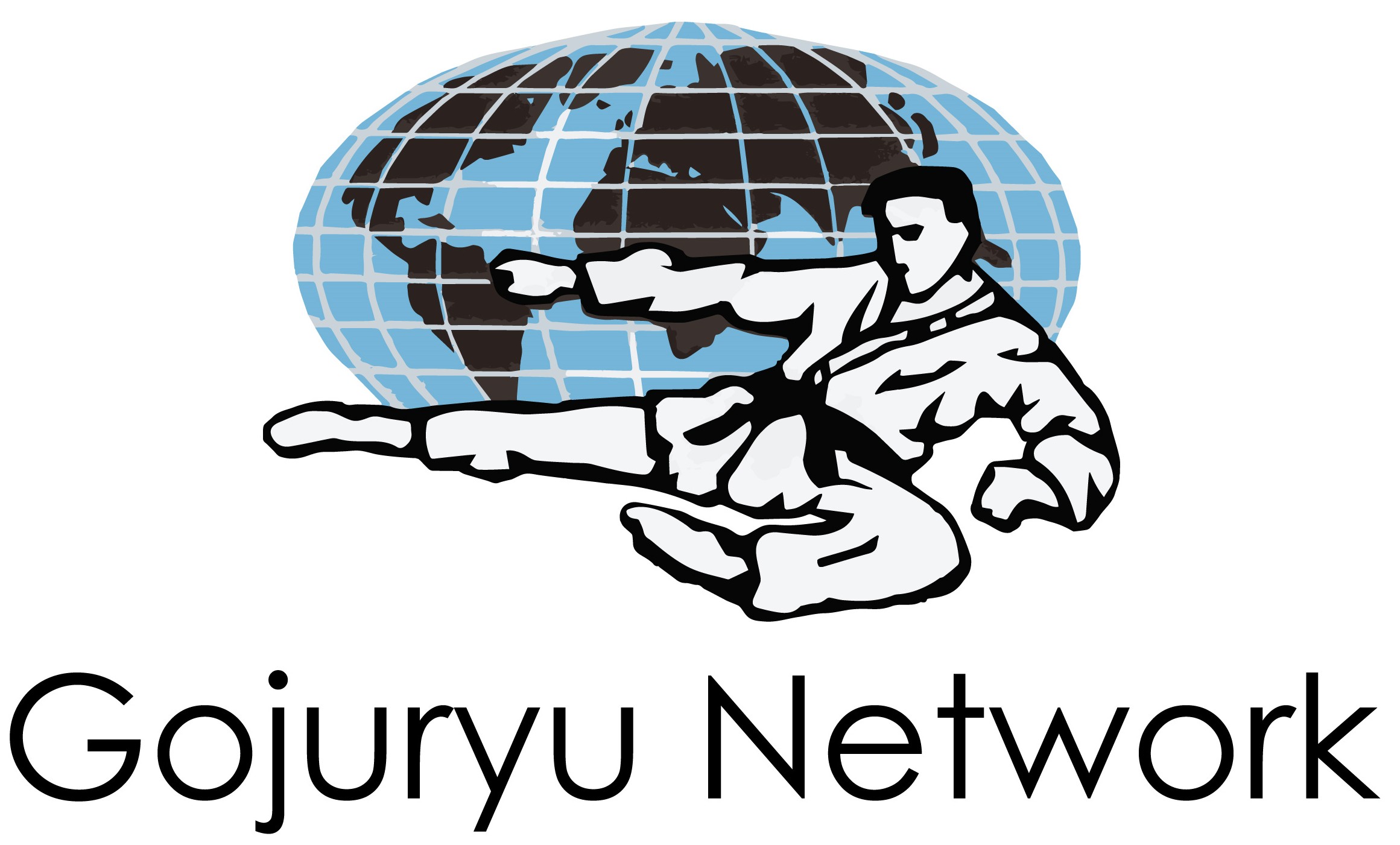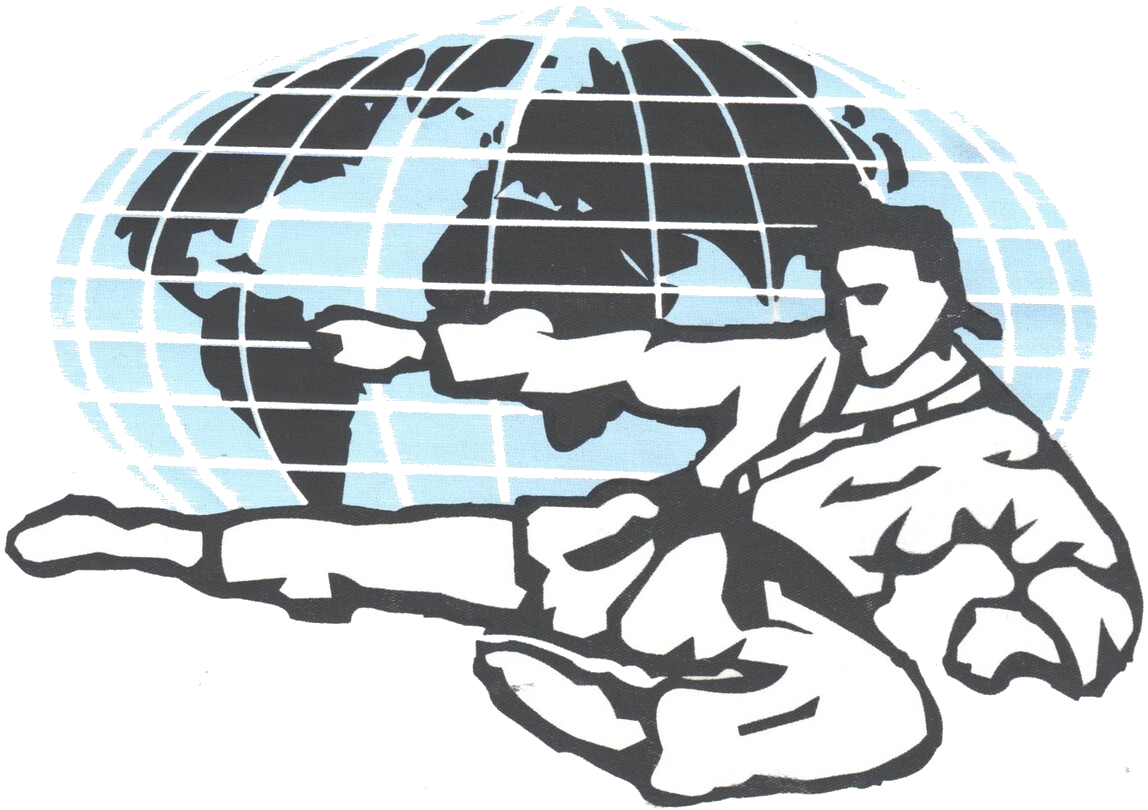Celebration Party to Honor Karate Kamisama 神さま Fujiwara Seiichi 藤原聖一
From a newspaper article published in October, 2002. Karatedo “Goju-ryu” Highest Dan 8-dan
Mr. Fujiwara of Omagari City
20 people in Japan prepare for a celebration party to honor the Karate Kamisama 神さま (Thursday, October 31, 2002)
平成14年10月新聞掲載記事より. 空手道「剛柔流」の最高峰8段に
大曲市の藤原さん
国内で20人、空手の「神さま」を祝おうと仲間が祝賀会の準備 (10月31日・木)
| This article celebrates the achievements of Seiichi Fujiwara, a highly respected figure in the world of Goju-ryu Karate-do. It provides a detailed account of his journey in karate, highlighting his promotion to the JKF Gojukai grade of 8th dan, a rare accomplishment that places him among an elite group of practitioners in Japan. The article also sheds light on Fujiwara’s dedication to teaching karate both domestically and internationally, emphasizing his commitment to not only improving technique but also character and manners in his students. Fujiwara’s approach to karate, focusing on the spirit of “not hitting others, not being hit, and not letting anything happen,” reflects the deeper philosophical aspects of the martial art. His influence extends beyond technical skills, as he is credited with shaping the character and leadership qualities of his students. The article concludes with a glimpse into Fujiwara’s future aspirations, including his dream of building a facility in Tokyo where karate practitioners from around the world can gather. This vision underscores his commitment to the global karate community and his desire to further spread the values and teachings of Goju-ryu. At the time of the original article in October 2004, Seiichi Fujiwara, held the JKF Gojukai Honbu grade of 8-dan (Honbu Instructor, Overseas Committee Member) in addition to thr grade of 7th Dan, All Japan Karatedo Federation. He had been an overseas instructor for 15 years. He also travels to Europe and the U.S. 3-4 times a year to teach, and currently has over 8,500 students in his hometown of Omagari, where he teaches 150 students in 7 branches. (Seiwakai Akita Omagari Dojo 18-5 Wakatake-cho, Omagari, Akita.) Fujiwara Sensei teaches high school students at the Omagari Municipal Budokan and his own private dojo. 藤原聖一, 全日本空手道連盟剛柔会本部八段(本部指導委員、海外委員), 全日本空手道連盟七段 海外の指導員として15年。年間に3~4回、ヨ-ロッパ アメリカを中心に指導に行く、現在弟子達は8500人を超えた地元大曲でも7支部あわせて150人の生徒の指導にあたる。誠和会秋田大曲道場 秋田県大曲市若竹町18-5 |

Fujiwara Seiichi 8th Dan
Seiichi Fujiwara, 52, of Ohara Ryokan, Shirogane-cho, Omagari, was promoted to the highest rank of Goju-ryu karate-do, 8th dan. Of the 15 candidates, only two, including Mr. Fujiwara, passed the exam. There have been only two people in their fifties who have attained the top rank of Hachidan in Goju-ryu Karate-do. Furthermore, there are only 20 people in Japan, including Mr. Fujiwara, who have attained the 8th dan. Last year, he was certified as “7-dan” by the All Japan Karatedo Federation, which is not affiliated with any particular style of karate. Mr. Fujiwara’s disciples and friends are delighted, saying, “In karate-do, 8th dan is like a god.
Mr. Fujiwara just returned from England, Slovakia, and Austria, where he had been staying to teach karate, on the evening of the 29th. He teaches abroad, mainly in Europe, twice a year. To qualify for Hachidan, one must have been a Shichidan for at least seven years. Mr. Fujiwara was promoted to “7-dan” in 1995. However, even with his experience, he still has to receive a recommendation from the head office in order to be eligible to take the 8-dan test. In Mr. Fujiwara’s case, the head office highly evaluated his 11 years of overseas teaching experience.
However, even with a recommendation from the head office, it was no mean feat to move up from 7-dan to 8-dan. The examiner must watch as the student performs the designated kata, demonstrates how to judge and attack the moves, explains the moves, and submits a paper on what he or she has learned from his or her relationship with karate. It is very rare to pass the exam on the first try, and it usually takes four to five attempts to qualify for the 8th dan. Mr. Fujiwara, on the other hand, passed the examination in just one try. The head office was surprised to hear that this was the first time in more than a decade that such a record had been set.
Mr. Fujiwara is from Yokote City. He started karate at the age of 17 when he entered Chiba University of Commerce. Before that, he was an athlete in track and field. When he learned that the university had a karate club, he joined, saying, “I want to learn martial arts and become stronger. There were 80 fellow students who joined the club with him. Most of them were defeated by the hard and rigorous training, and after three months there were only 10 of them left. However, as he progressed despite the rigorous training, Fujiwara became hooked on the fun of karate.
Upon graduating from college, he joined a construction company in Chiba Prefecture that was owned by a senior member of the karate club. After working there for two and a half years, he was approached by the Gojukai headquarters to become the coach of the university karate club. At that time, Mr. Fujiwara was a 3rd dan.
At that time, Mr. Fujiwara’s parents moved from Yokote City to Omagari City and started an inn business. His parents asked him to help out at the inn, and he returned to Omagari City in the fall of 1973. In October of the following year, he founded a karate dojo, Seiwa-kai, in Wakatake-cho and began teaching karate. Today, the dojo has grown to seven branches in Akita City, Yokote City, Kamioka Town, Nakasen Town, and other areas as his juniors from that time have grown up. Mr. Fujiwara now exclusively teaches karate to high school students in the city at the city’s Budokan and at a dojo in Wakatake-cho. In the meantime, he travels overseas to teach mainly in Europe.
Mr. Fujiwara says, “I am very happy to be able to teach karate to elementary school students and other students. The children who want to learn karate, including elementary school students, come to me saying, ‘I don’t want to lose in a fight, I want to be strong. I don’t want to lose in a fight. I want to be strong. But karate is not about getting stronger in fights. We teach the children good manners first, and try to improve their character rather than their technique. Karate can be dangerous if the techniques are used carelessly. Goju-ryu is based on the spirit of “don’t let others hit you, don’t let others hit you, and don’t let anything happen to you. The foundation of karate-do is how you live your life so as not to make your opponent feel bad,” he said.
Many of the elementary school students who have learned karate under Mr. Fujiwara’s tutelage also join their school clubs in the fourth and fifth grades, and many of them are recommended as captains or other leaders of their clubs, according to Mr. Fujiwara. Mr. Fujiwara has trained nearly 1,000 students, and since four years ago he has also served as an instructor for eight students at the Gojukai headquarters. He still wears the white “dogi” that he wears when practicing karate, and works out at the dojo every day. I get anxious if I don’t move around in my dogi,” says Fujiwara. His soft smile and soft-spoken manner give no hint of the solemnity of the man who is called the “god of karate.
Fujiwara, who taught overseas from the 15th to the 29th of this month, said, “There are more than 7,500 Goju-kai members overseas. I talked with the European Director about this, and we discussed the idea of building a facility in Tokyo where all of our members can gather, since we have friends all over the world. That is my dream for the future,” said Fujiwara. When traveling abroad, “language” is not a concern. Local people who studied karate when they studied abroad will act as interpreters for him. When you learn a foreign language, you get caught up in the customs of that country, and you end up compromising yourself. On November 23, a celebration party will be held at the Empire Hotel in the city to celebrate Fujiwara’s dan promotion, hosted by his friends and students.

大曲市白金町の藤原聖一さん(52)=大原旅館=は剛柔流空手道の最高峰「八段」に昇格した。今年8月に全日本空手道連盟剛柔会本部主催の全国大会が長崎県佐世保市であった時、本部から八段の受審認可を受け、厳しい実戦実技と論文審査を受け、合格した。15人の受審者のうち、合格したのは藤原さんを含め2人だけ。剛柔流空手道で50代で「八段」の頂点に立ったのはこれまで2人しかいない。しかも八段の取得者は藤原さんを含め、全国でたった20人。昨年は流派にこだわらない全日本空手道連盟から「七段」の資格を認定されている。藤原さんの弟子や仲間は「空手道で八段と言えば神さまのようなもの」と喜び、藤原さんの昇段を祝う祝賀会の準備を進めている。
藤原さんは29日夜、空手指導のため滞在していたイギリス、スロバキア、オーストリアから帰国したばかり。毎年2回はヨーロッパを中心に海外で指導をしている。八段の受審資格を得るには七段になって7年以上の経験が必要。藤原さんは1995年に「七段」に昇段した。しかし、経験を積んでも八段を受審するには本部からの推薦を受けなければならない。藤原さんの場合、海外での指導経験11年の実績が本部から高く評価された。
だが、本部から推薦があっても七段から八段への昇段は並大抵のものではない。審査員が見守る中、指定された「形」の演技を行い、仕掛けられた技をどう裁き、攻撃するか実戦実技を見せ、その技の解説、さらに空手と自分とのかかわりで得たものは何かなどをテーマにした論文も提出しなければならない。一回で合格するのはごくまれで、普通は4回から5回も挑戦してやっと八段の資格を得るのが普通。それを藤原さんは一回の審査で合格した。本部からは十数年ぶりの記録だと珍しがられたと言う。
藤原さんは横手市出身。空手を始めたのは千葉商科大学に入った17歳の時から。それまでは陸上競技の選手だった。大学に空手部があるのを知って「格闘技を身につけ、強くなりたい」と入部した。一緒に入った仲間は80人もいた。ハードで厳しい練習にほとんどが根負けし、3カ月後に残ったのはわずか10人だった。しかし、練習が厳しくても上達するに従い、藤原さんは空手の面白さにはまった。
大学を卒業すると同時に空手部の先輩が経営していた千葉県の建設会社に入社。そこに2年半勤務したが、剛柔会本部から声が掛かって大学空手部のコーチに就任。その時の藤原さんは三段だった。
そのころ藤原さんの実家では横手市から大曲市に移って旅館業を始めた。その両親から「旅館を手伝ってもらいたい」と声が掛かり、73年秋に大曲市へ帰った。旅館を手伝いながらも空手は忘れられず、翌年10月に若竹町に空手道場「誠和会」を創立させ、指導を始めた。現在はそのころの後輩が育って、秋田市や横手市、神岡町、中仙町など7支部の道場へと膨らんだ。藤原さんは現在はもっぱら市内の高校生を相手に市の武道館や若竹町の道場で空手の指導をしている。その間にヨーロッパを中心に海外指導に出かける。
藤原さんは話す。「小学生をはじめ空手を学びたいと言ってくる子どもたちは『ケンカに負けたくない。強くなりたい』と入ってくる。でも、空手はケンカに強くなるため学ぶものではない。子どもたちにはまずマナーを徹底的に指導し、技よりも人間を磨くことに努めている」と。空手はその技をむやみに使うと危険を伴う。剛柔流は「人に打たれず 人を打たず 事なきを基とする」がその精神基盤。「相手に嫌な思いをさせないために自分はどう生きるかが空手道の基本です」とも。
藤原さんの指導を受けた小学生たちは4、5年生になると学校の部活にも入る子も多いが、空手を学んだ多くの子どもたちはその部のキャプテンなどリーダーに推薦されるのが多いと言う。藤原さんが育てた弟子は1000人近い。4年前からは剛柔会本部の8人の指導委員としても活躍している。今でも空手をやる時の白い「道着(どうぎ)」を着け、道場で毎日、体を動かす。「道着を着けて体を動かさないと不安になるんです」と藤原さん。その柔和な笑顔、ソフトな口ぶりからは空手の〃神さま〃と称される厳かさは少しも感じさせない。
今月15日から29日まで海外で指導してきた藤原さんは「海外の剛柔会のメンバーは7500人を超えた。ヨーロッパ本部長とも話したが、世界中に仲間がいるので、東京にその仲間が集まれる施設を作りたいなと話し合った。それがこれからの夢です」と藤原さん。海外に出張しても「言葉」は心配ない。留学した際に空手を学んだ現地の人たちが通訳を買って出るからだ。「外国語を覚えると、その国の習慣に巻き込まれ、妥協してしまうんです。あえて覚えないことにしてます」と藤原さんは笑った。11月23日には市内のエンパイヤホテルで藤原さんの昇段を祝う「祝賀会」が仲間とその弟子の主催で開かれる。








